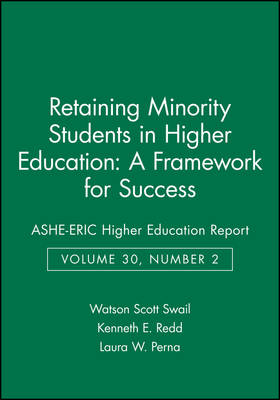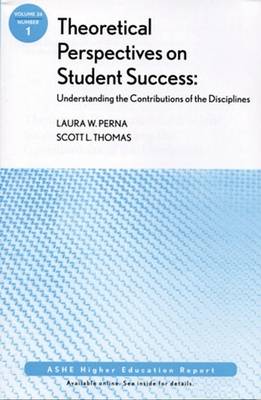J-B ASHE Higher Education Report Series (AEHE)
2 total works
Retaining Minority Students in Higher Education: A Framework for Success
by Watson Scott Swail, Kenneth E. Redd, and Laura W. Perna
Published 5 January 2004
In the last decade, the rates of enrolment and retention of many students of colour have declined. Access and completion rates for African-American, Hispanic, and Native American students have always lagged behind white and Asian students, as have those for low-income students and students with disabilities. Because students of colour often make up a much smaller percentage of students in studies, their experiences and needs are often lost and go undetected. As the authors note, the United States will become significantly less white over the next fifty years, so these issues are becoming more urgent. We must have institution-wide programs to improve the graduation rates of minority students. Pre-college preparation, admission policies, affirmative action, and financial aid are important factors, but campus-wide support, from the chancellor's office to the classroom, is critical to success. This "ASHE-ERIC Higher Education Report" is intended as a reference for key stakeholders regarding the realities of and strategies for student retention. It is our hope that it will serve as a compass for those with the complex task of improving retention.
Theoretical Perspectives on Student Success: Understanding the Contributions of the Disciplines
by Laura W. Perna and Scott L Thomas
Published 12 August 2008
Drawing on a review of theory, methods, and the substantive focus of student success research in four disciplines, this report proposes a conceptual model to guide policymakers, practitioners, and researchers in their efforts to close well-documented gaps in student success. The model proposes that student success is determined by four layers of context: the students' internal context, the family context, the school context, and the broader social, economic, and policy context. OL {list-style:decimal}P:{margin-left 60px} The model also assumes that student success is a longitudinal process multiple theoretical approaches inform understanding of student success student success is shaped by multiple levels of context the relative contribution of different disciplinary and area perspectives to understanding student success varies multiple methodological approaches contribute to knowledge of student success student success processes vary across groups. The monograph offers several implications of the model for policymakers and practitioners as well as researchers. This is the first issue in the 34th volume of the Jossey-Bass series ASHE Higher Education Report .
Each monograph in the series is the definitive analysis of a tough higher education problem, based on thorough research of pertinent literature and institutional experiences. Topics are identified by a national survey. Noted practitioners and scholars are then commissioned to write the reports, with experts providing critical reviews of each manuscript before publication.
Each monograph in the series is the definitive analysis of a tough higher education problem, based on thorough research of pertinent literature and institutional experiences. Topics are identified by a national survey. Noted practitioners and scholars are then commissioned to write the reports, with experts providing critical reviews of each manuscript before publication.

